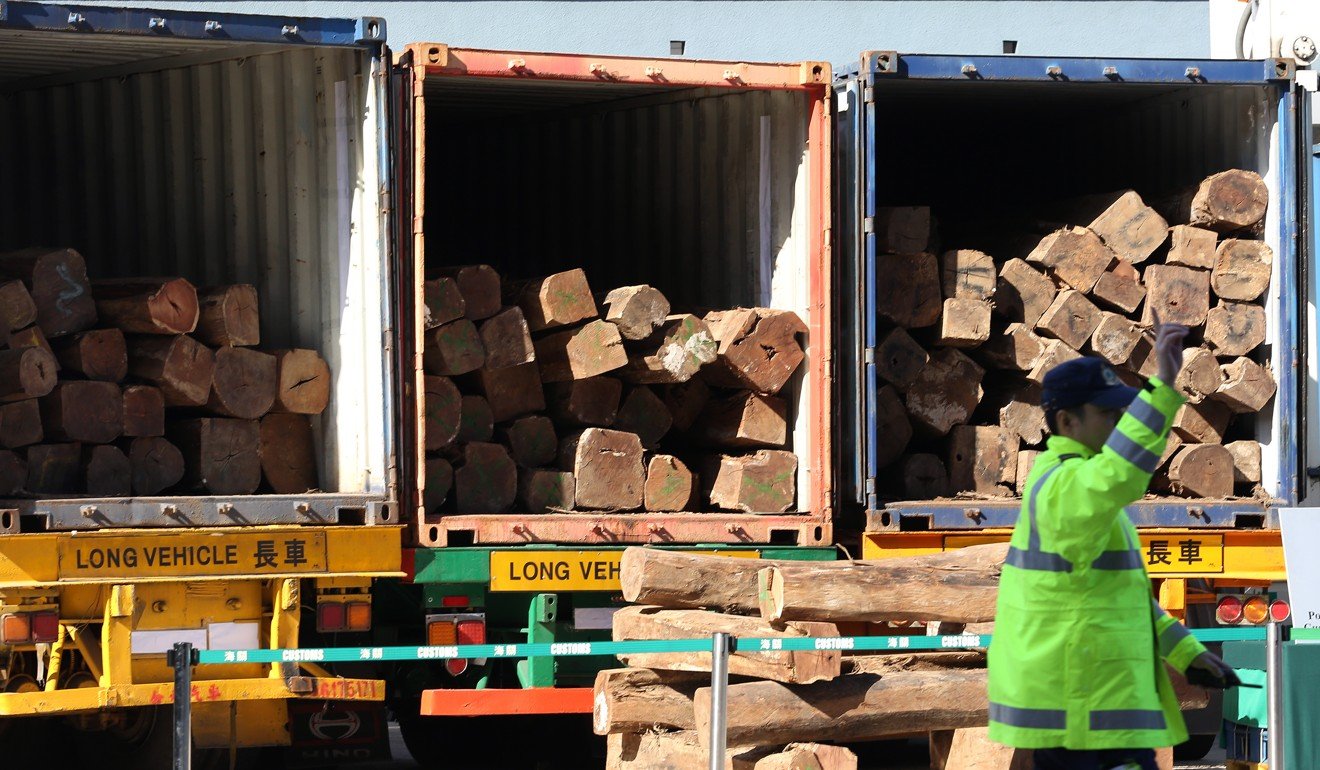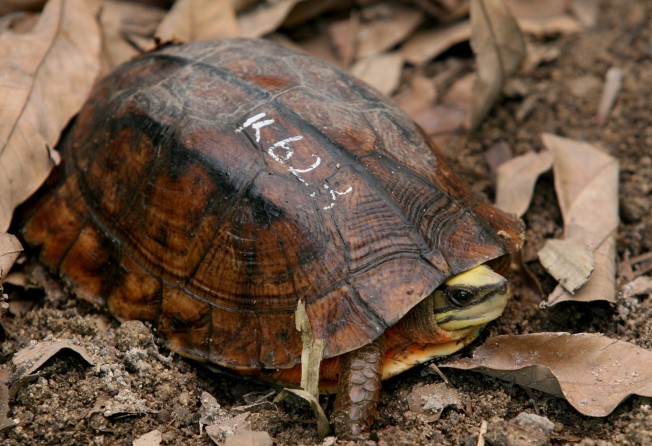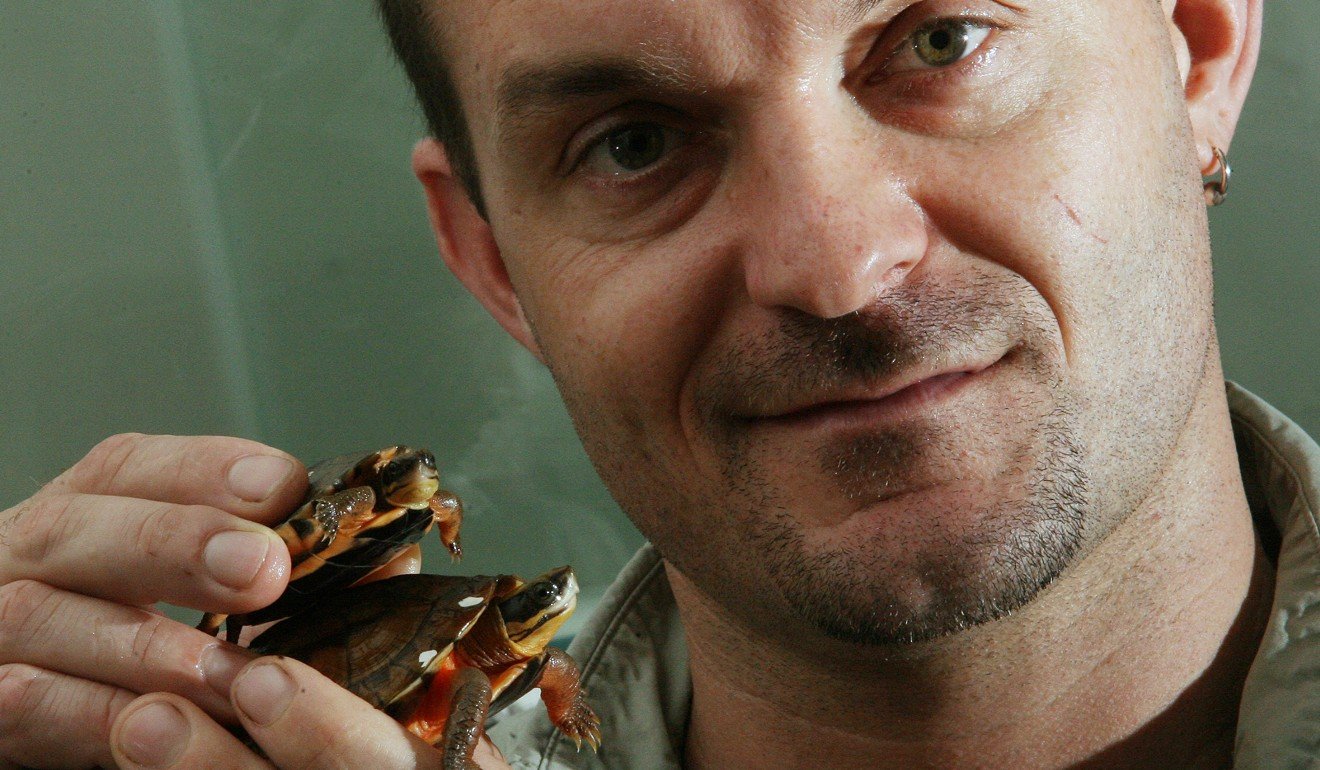
Hong Kong green groups call for endangered species smuggling to be dealt with using organised crime laws
Experts say wildlife offences should be included under Organised and Serious Crimes Ordinance to help authorities target ‘kingpins’ rather than ‘mules’

Hong Kong conservationists are calling for wildlife offences to be included in the same laws used to combat organised crime for greater deterrence and investigative firepower.
Despite Hong Kong’s pivotal role in the global wildlife trade, the city has yet to crack down on any related criminal enterprises, though most experts believe local poaching and smuggling of endangered species are closely coordinated.
Most smuggling offences are now prosecuted under the Protection of Endangered Species of Animals and Plants Ordinance (Cap 586). Maximum penalties were recently tightened significantly to a HK$10 million (US$1.28 million) fine and 10 years’ imprisonment, up from a HK$5 million fine and two years in jail.

But actual prosecutions so far have been few and far between and the number of endangered species smuggling cases has been increasing and successful convictions decreasing.
According to customs data, 309 cases of endangered species smuggling involving 126 convictions were recorded in 2016. Last year, there were 433 cases and 189 convictions. And up to June this year, 422 cases and 83 convictions.
The calls came as the Ocean Park Conservation Foundation recently brought to light the still rampant poaching of the critically endangered golden coin turtle in the Hong Kong countryside. Only one successful prosecution has been made since 2013, involving a HK$15,000 fine.
The turtles are often sold without a licence and smuggled across the border to mainland China, where they can change hands for hefty profits. At least 100 to 200 incense trees a year are also illegally logged in the city and spirited away in the same manner.
There were 22 cases involving seizures of illegal shark fin from 2013 to 2017. No one was prosecuted.
Experts have suggested wildlife crimes be included under the Organised and Serious Crimes Ordinance (Cap 455), also known as OSCO, which would help authorities target the “kingpins” rather than the “mules”.
“To further deter transnational criminal enterprises who use Hong Kong as a favoured route for wildlife smuggling, Hong Kong’s wildlife crime offences should be included under Schedule 1 of OSCO,” WWF-Hong Kong senior programme officer Tracy Tsang said. “It is known that wildlife criminal enterprises operate through international criminal groups.”
Under Schedule 1, powers can be granted to investigators through OSCO to look into areas such as money laundering regarding wildlife crime, whether the offence occurs inside or outside Hong Kong.

The ordinance came into effect in 1994 to hit triad and criminal organisations where it hurt most – their pockets.
“From poaching to smuggling … operations appear to be syndicated,” said Paul Crow, senior conservation officer at Kadoorie Farm and Botanic Garden. “They require a lot of resources to run and a close degree of coordination.”
The city’s track record of prosecutions however, was limited and lacked real deterrence, he said. “If someone is caught, it’s usually just the van driver – a ‘small potato’ – and not enough to put out the syndicate behind.”
Crow said using wildlife protection laws to tackle such offences meant the enforcement agency involved – the Agriculture, Fisheries and Conservation Department – lacked the wherewithal to investigate a complex crime sometimes going beyond borders.
“AFCD is given responsibility but without police work and forensic investigation coming into play … they will not be able to dig deep enough,” he said. “Tracking bank accounts, communications, following the money trail; these can take place on a global scale.”
The department said law enforcers could already obtain greater powers under OSCO if they considered the involvement of organised and serious crime elements such as triads, money laundering or smuggling, but for now, penalties were adequate.
“The maximum penalty under Cap 586 has been significantly increased,” a spokeswoman said. “It is believed that … will provide a sufficient deterrent effect.”
The department would closely monitor the situation and “review from time to time the need and rationale to include offences under Cap 586 in the ambit of OSCO”, she said.
Neither the department nor Security Bureau could provide any breakdown on the use of OSCO to prosecute endangered wildlife crimes.
Stan Shea, marine programme director at environmental group Bloom Association, said the government was only able to seize suspected cargoes of illegal specimens now but not follow up on them.
“Yes it’s true Cap 586 has been tightened and OSCO powers already exist, but there is nothing to trigger them to use it,” he said.
Under OSCO, wildlife specimens – as with drugs, firearms and pirated DVDs – would immediately prompt use of the ordinance. It would also allow authorities to freeze bank accounts.
Shea said green groups were actively working to communicate these points to the Department of Justice and lawmakers.